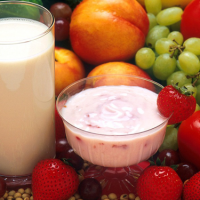
Eating Healthy During Pregnancy
Starting off your with a healthy well balanced diet is the best thing you do for yourself and your baby. This way, you’ll only need to make a few adjustments during your pregnancy.
Your first trimester If you find it tough to maintain a balanced diet during your first trimester, you can rest assured that your not alone. Due to queasiness, some women will eat all of the time and gain a lot of weight in the process. Other women have trouble getting food down and subsequently lose weight.
Preventing malnutrition and dehydration are your most important factors during first trimester.
Calories
When you are pregnant, you need to consume around 300 calories more than usual every day. The best way to go about doing this is listening to your body when you are hungry. You should try to eat as many foods as possible from the bottom of the food pyramid.
If you gain weight too slow, try eating small meals and slightly increase the fat in your diet. You should always eat when you are hungry, as you are now eating for 2 instead of one.
Calcium
By the second trimester, you’ll need around 1,500 milligrams of calcium each day for your bones and your baby’, which is more than a quart of milk. Calcium is something that’s missing from many diets. Along with milk, other great sources for calcium include dairy products, calcium fortified juices, and even calcium tablets.
Fiber
Fiber can help to prevent constipation, which is a common pregnancy problem. You can find fiber in whole grains, fruits, and even vegetables. Fiber supplements such as Metamucil and Citrucel are safe to take during pregnancy.
Protein
Unless you happen to be a strict vegetarian, your protein intake is not normally a problem for women who eat a healthy diet.
Iron
A lot of women will start their pregnancy off with a bit of iron deficiency. Good sources of iron include dark leafy green vegetables and meats. Iron supplements should be avoided, as they can cause internal symptoms such as cramping, constipation, or diarrhea.
Vitamins
Seeing as how you get a majority of the vitamins you need in your diet, you may want to discuss prenatal vitamins with your doctor. Folate is one of the most important, and if you are getting enough of it, you may be able to avoid vitamins all together – just ask your doctor to make sure.







